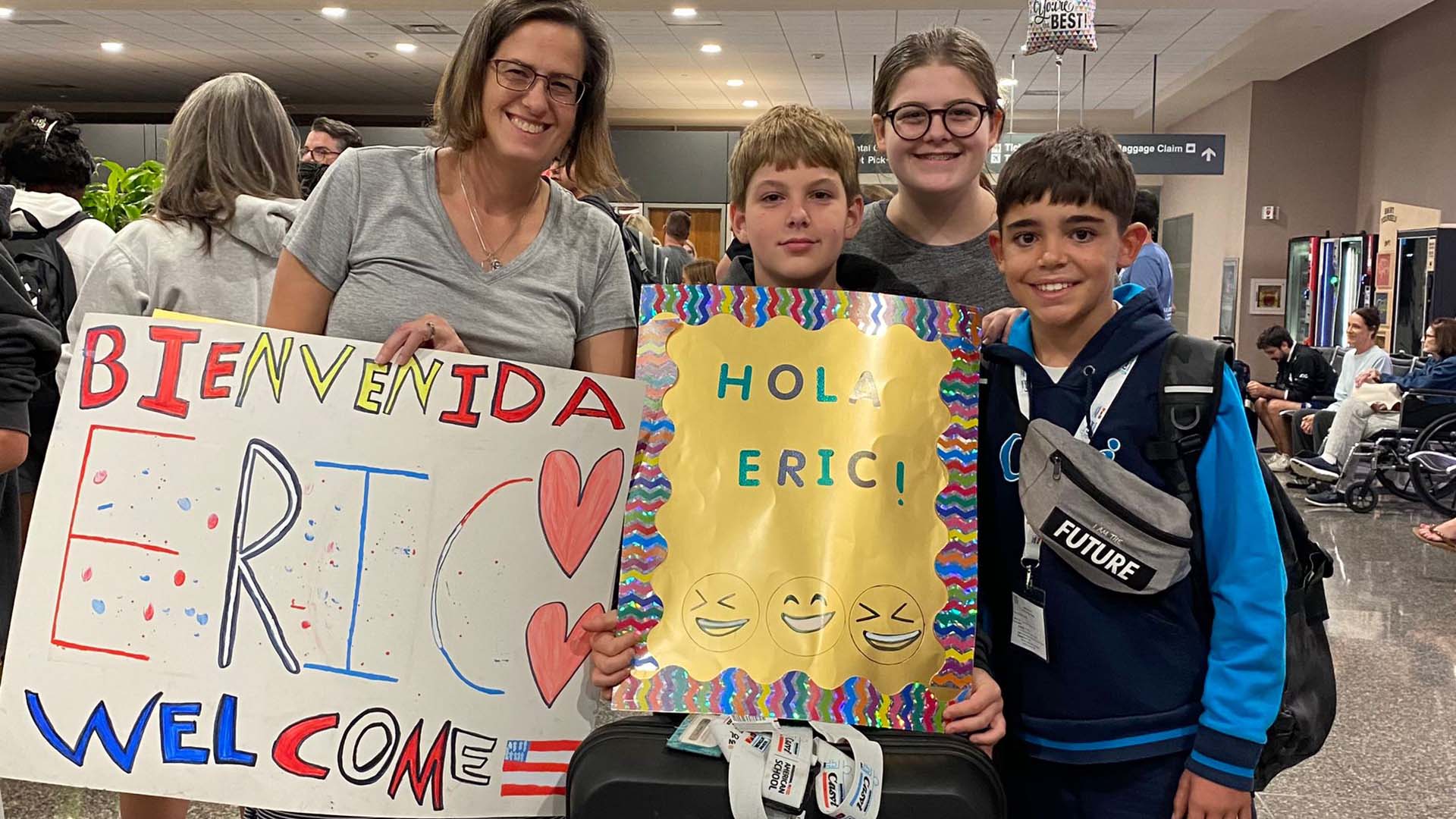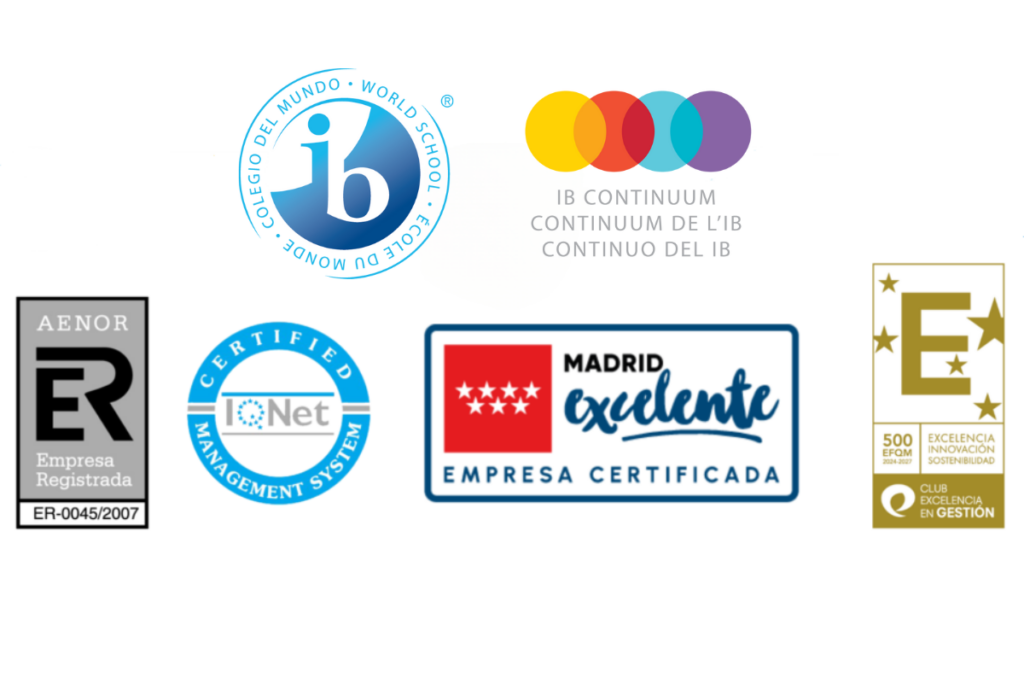In an increasingly globalised world, proficiency in multiple languages has become an invaluable skill. The term “multilingual” encompasses the idea of being able to communicate in several languages, which opens up a range of opportunities and benefits.
In this article, we will explore why it is important to be multilingual and how acquiring this knowledge can transform our lives. In addition, we will highlight the experience of the students of the Eurocolegio Casvi International Private School, a benchmark in the promotion of multilingualism in Spain.
ADVANTAGES OF BEING MULTILINGUAL
1.-COMMUNICATION CONSTRAINTS
The first problem faced by those who are not multilingual is limited communication. In a globalised world, where borders are blurring and international connections are more common than ever, not knowing more than one language can be a significant obstacle.
2.- LABOUR MARKET RESTRICTIONS
In a highly competitive labour market, multilingualism has become an essential requirement for many professions. Companies value employees who can communicate effectively in several languages. This broadens employment opportunities.
3.- CULTURAL BARRIERS
Lack of knowledge of other languages can lead to cultural misunderstandings and interpersonal conflicts. Multilingualism is not only about speaking different languages, but also about understanding and appreciating the cultures around them.


THE MAGNITUDE OF THE CHALLENGE OF BEING PLURILINGUAL
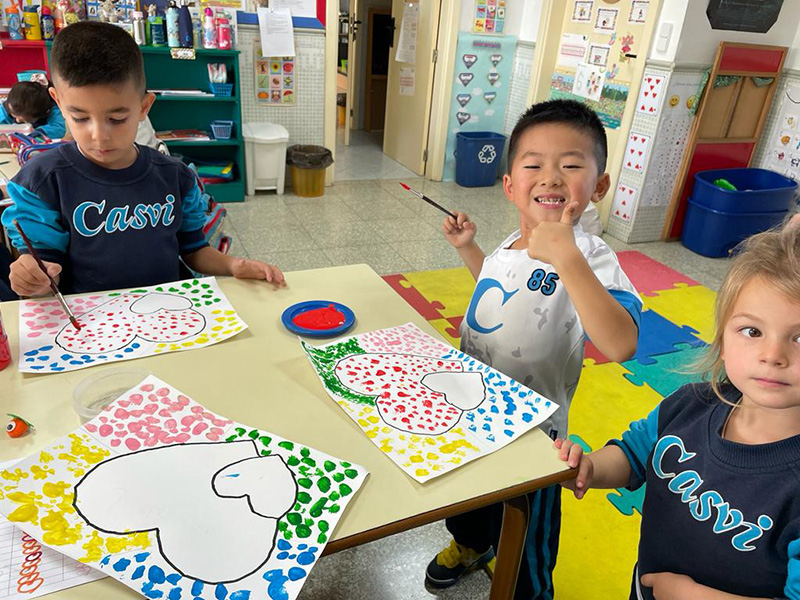
To understand the seriousness of not being multilingual, it is important to explore some alarming statistics, expert opinions and the impact on health, society and the economy. Furthermore, it is crucial to highlight the need for effective solutions to address these problems. Let us look at the details:
1.- DISTURBING STATISTICS
The statistics reveal a worrying reality. According to UNESCO, more than 40% of the world’s population does not have access to education in their mother tongue. This not only limits their ability to communicate. It also restricts their access to learning and employment opportunities. In many countries, illiteracy is a serious problem, and much of it is due to lack of access to education in the right language.
“Learning another language is not just learning different words for the same things, but learning another way of thinking about things”.
2.- EXPERT OPINIONS
Education and linguistic experts have stressed the importance of multilingualism. The Dra. Susan Ervin-Trippa renowned linguist, argues that “learning languages is a window to the mind and to the world”. Not being multilingual means closing that window and limiting access to new perspectives and knowledge.
3.-HEALTH IMPACT
Lack of multilingualism can have a direct impact on health. The World Health Organisation (WHO) has stressed the importance of communication in this area. The language barrier between doctors and patients can lead to misunderstandings, misdiagnosis and inappropriate treatment.
5.-IMPACT ON SOCIETY
Lack of multilingualism can lead to divisions in society. Lack of multilingualism can lead to divisions in society. This makes cooperation and mutual understanding difficult. This makes cooperation and mutual understanding difficult.
6.-IMPACT ON THE ECONOMY
In economic terms, not being multilingual can be costly. According to the Monterrey Institute of International Studies, lack of proficiency in several languages can mean a significant economic loss in terms of international business opportunities. Companies that cannot communicate in several languages may lose out on contracts and opportunities for expansion.
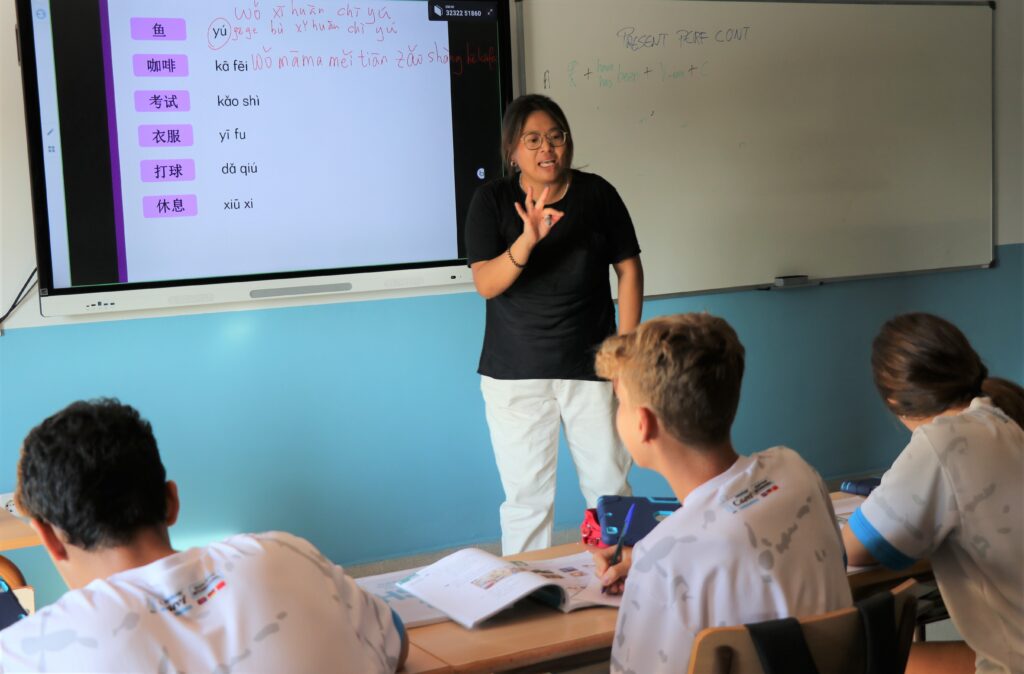
THE NEED FOR EFFECTIVE SOLUTIONS
The seriousness of not being multilingual is undeniable. To address this problem, effective solutions are required at the individual and collective level. Some of the key solutions include:
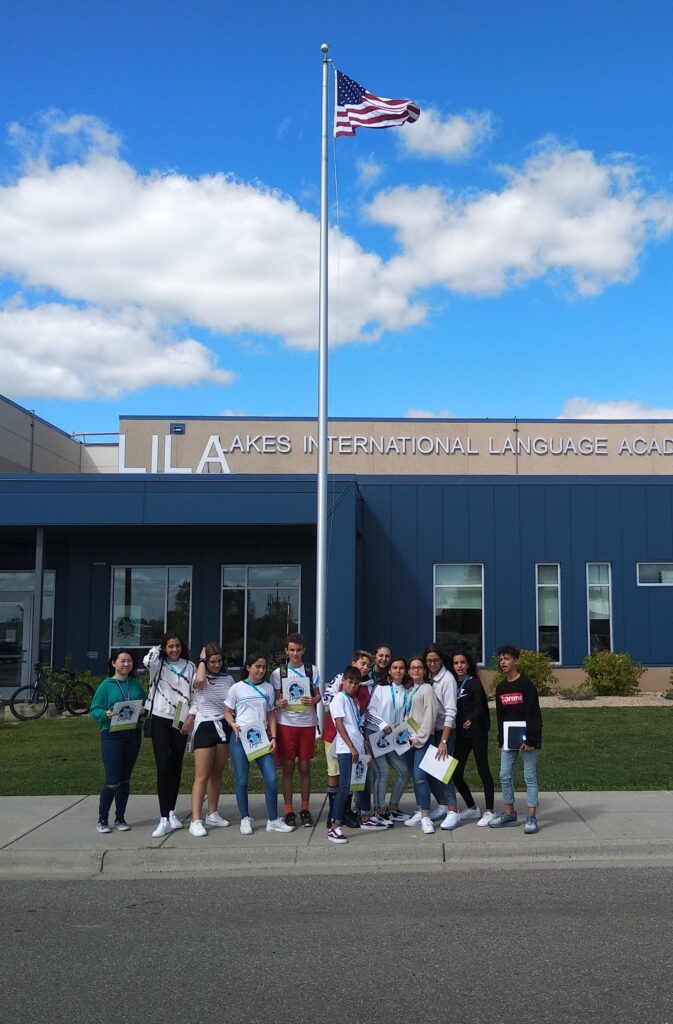
1.- INVESTMENTS IN EDUCATION
Governments and educational institutions should invest in education programmes that promote multilingualism from an early age. This includes the training of teachers and the creation of educational materials in several languages.
2.- ACCESS TO RESOURCES
It is essential that people have access to resources that facilitate language learning, such as online courses, apps and libraries that focus on multilingualism. NGOs can play a vital role in distributing these resources.
3.- PROMOTION OF CULTURAL DIVERSITY
It is essential that people have access to resources that facilitate language learning, such as online courses, apps and libraries that focus on multilingualism. NGOs can play a vital role in distributing these resources.
4.- SUPPORT IN THE HEALTH FIELD
Health systems should provide interpretation and translation services to ensure that language barriers do not hinder medical care.
5.- RECOGNITION OF THE ECONOMIC IMPORTANCE
Companies and employers must recognise the value of multilingualism in international business. This includes the recruitment of multilingual staff and investment in training programmes.
HOW TO MAKE MY CHILD MULTILINGUAL
Inculcating multilingualism in future generations is essential. Children have a remarkable facility for learning languages, and exposure to different languages from an early age is essential. There are many solutions for the pain points mentioned above. These include:
1.- LEARNING LANGUAGES: THE KEY TO MULTILINGUALISM
The first step towards multilingualism is learning languages. This can be done through language courses, applications, cultural exchanges or even classes in educational institutions.
2.- THE ROAD TO MULTILINGUALISM
To overcome restrictions in the labour market, it is essential to keep learning and practising languages. Multilingualism is not achieved overnight, but is a continuous journey that requires patience and dedication.
3.- IMMERSING ONESELF IN CULTURES
To overcome cultural barriers, it is important not only to learn the language. Also to immerse oneself in the culture associated with the language. Travelling, making friends from different countries and participating in cultural events are excellent ways to achieve this.
4.- MOTIVATING CHILDREN
Parents can help their children find the right motivation to learn a language.
5.- CHOOSE AN EFFECTIVE METHOD
It is important to choose a learning method that suits the child’s needs.
6.- FACILITATING PRACTICE
It is important to choose a learning method that suits the child’s needs.
TIPS FOR HELPING CHILDREN LEARN LANGUAGES
Here are some tips to help children learn languages. Studying English, German or Chinese are the most popular options.
- Start early: It is easier to learn languages when you are a child.
- Create a positive environment: Children should feel that learning languages is fun and rewarding.
- Be a good role model: Children learn by imitation, so it is important for parents to be a good example of multilingualism.

BENEFITS OF MULTILINGUALISM
These are the main benefits of multilingualism:
- Multilingual students have better memory and attention span.
- Stimulates the brain and cognitive functions.
- Improved problem solving. Thanks to multilingualism, they will face them boldly.
- They develop an open mind. They understand the diversity of cultures as a way of enriching our minds. It gives you a broader perspective on the world.
- It improves both oral and written expression. They stand out as good communicators.
- They have an advantage when it comes to choosing and facing their university future. Especially in international disciplines.
- Multilingualism also broadens career opportunities. Multilinguals are often more attractive to employers in a globalised business world.
- Languages are a loudspeaker to the world in order to interact in the globalised society of the 21st century.
- It promotes inclusion in the classroom.
- Finally, multilingualism fosters pupils’ global competence.
PLURILINGUALISM AT THE INTERNATIONAL PUBLIC SCHOOL EUROCOLEGIO CASVI
Multilingualism is an increasingly important skill in today’s world. It is important for parents to help their children learn languages from an early age. Eurocolegio Casvi International Private School offers a multilingualism programme that can help children to achieve their language goals.
As one of its main objectives is the promotion of internationality, the main tool for this at Casvi Villaviciosa is multilingualism. This is achieved by teaching three foreign languages: English from scratch, German and Chinese. Also through our Language Exchange Programme with countries all over the world.
LEARNING ENGLISH
Thanks to our own methodology, practically all of our students complete the Baccalaureate or the International Baccalaureate Diploma Programme, with CAE and/or PROFICIENCY qualifications from the University of Cambridge (Common European Framework). English is learnt from scratch, teaching from the first cycle of nursery school.
Learning English at Colegio Privado Internacional Eurocolegio Casvi is easy. It is taught in classes
eminently practicals, with native and bilingual teachers, who accompany them throughout the school day.
There is also the possibility to choose full immersion in English in years 3 and 4.
On the other hand, for the development of reading comprehension, a “Reading Plan” has been implemented in Infant Education which will continue in the coming years. Its aim is to encourage pupils’ interest in reading.
From 5th Primary to 4th Secondary, we work with smaller groups of pupils distributed by performance levels. Thus, four levels are established in the MYP courses, both in the General English classes and in the Conversation classes. In this way, dynamic and participatory lessons are encouraged.
There are also four levels for learning English in Baccalaureate. In this way it is possible to work on the preparation of external exams at different levels.
In the IB Diploma Programme it is also possible to study its subjects in a bilingual format.
LEARN GERMAN AND CHINESE
Chinese and German are taught from 5th grade onwards. It is made a compulsory subject for all students. In the same way, they are taught in small groups with bilingual and native teachers. The communicative approach is emphasised in the teaching of these languages. This aims to develop students’ oral and written expression skills.
Within the framework of this approach, special emphasis has been given to work on oral expression. The aim of all this is to enable them to take the external exams for German (Goethe Institute) and Chinese (Confucius).
PUPILS WITH LEARNING DIFFICULTIES
The educational project of the Eurocolegio Casvi International Private School, in relation to plurilingualism, also contemplates students with learning difficulties.
In this case, the Guidance Department collaborates with the language teachers in the necessary adaptations and carries out a follow-up, thus making education inclusive.
The same is true if pupils come from other nations. In this case, they receive linguistic support to enable them to catch up more quickly with the school’s language of instruction.
In addition, specific Spanish classes for foreigners are offered for those who stay at our centre on a cultural exchange.

